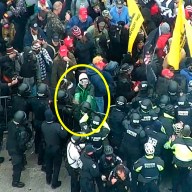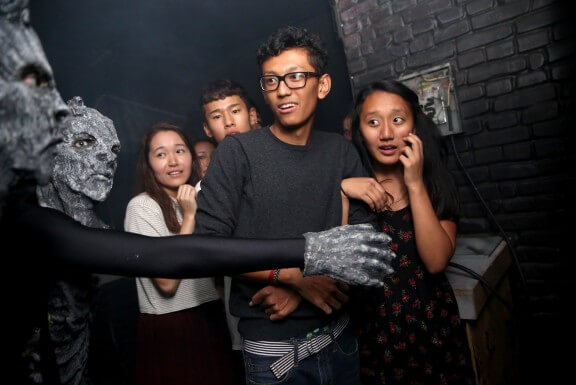 Mark Duplass reprises his football addict character for the fifth season of “The League.”
Mark Duplass reprises his football addict character for the fifth season of “The League.”
Credit: Getty Images
To some, Mark Duplass is a filmmaker specializing in small dramedies like “The Puffy Chair,” “Cyrus” and “Jeff, Who Lives at Home.” To others, he’s an actor who plays soulful slacker types in “Humpday,” “Your Sister’s Sister” and “Safety Not Guaranteed.” But to most, arguably, he’s Pete, the horrifically dude-ish fantasy football addict on “The League.” Though the FX show enters its fifth season, Duplass says his character hasn’t changed much — which is good.
How do you feel Pete has evolved over the seasons?
Here’s the greatest thing about Pete and this show: Pete does not grow up. Every man-child movie or anything you watch, over the course of 90 minutes they learn their lessons and become good people. Pete’s kind of a terrible human being. He’s super shallow. He’s very into fantasy football because he doesn’t have very much else going on in his life. He really doesn’t change — which I kind of love.
Do you think he’ll ever change?
I think Pete’s got a shot at beginning self-awareness around 75. But I wouldn’t bet on it.
Are there any stray similarities between you and Pete?
No, I’m so different from him. He has this confidence — even if he doesn’t work hard, he knows he’s going to be fine in the world. I’m deathly afraid of failure and am pretty neurotic and I’m a workaholic because of that. If I don’t create projects for myself, nothing will happen.
The cast is mainly comic actors, whereas you and your wife Katie Aselton come from movies.
The films that we’ve done are dramedies, so we have an appreciation for comedy. You just have to take ego out of it, and make sure you’re not trying to be the funniest one in the scene all the time. You’re just trying to make the funniest scene you can. And sometimes that’s setting somebody else up.
How do you maintain the group rapport, especially with gaps in seasons?
We’re all very close friends. Steve [Rannazzisi] just moved back to New York. But the rest of the cast, we all live within two miles of each other. We use Katie’s pool as a place where we hang out a lot. We’re buds, we just kind of lucked out on this one.
As an actor, what are the challenges of doing TV versus film and hanging onto the same character?
“The League” is a bit like summer camp. I get to show up and just be an actor and improvise and have fun. And then I walk away. We’re not really arc-ing these characters long-term. We’re watching them in their stasis — we’re watching their eternal state of man-childishness. The real challenge is trying to stay creatively relevant and stay creatively inspired. The thing that helps us the most with “The League” is it’s an improvised show. We work from outlines, so you can never get to that lazy space where you just memorize your lines and spit them out. You always have to be on your feet, you always have to be paying attention, because you never know what’s gong to happen. It keeps you vital.
You’re working on your own TV show, “Togetherness,” for HBO. What are some challenges of writing and directing in this different medium?
We’re really not pros at long-form drama yet. We’re new at it. Our films barely crack 90 minutes. HBO has been not only helpful but really supportive and letting us have our vision — laying back when the time is right but also stepping forward when they need to. They tell us to let things breathe, let things open up, to think in terms of eight seasons. They’ve actually taught us quite a bit.
What have you learned from some of the other directors you’ve acted for, like Noah Baumbach, Kathryn Bigelow and Lawrence Kasdan?
Lawrence Kasdan taught me efficiency with words. When I improvise I ramble a lot. Kathryn Bigelow showed me that you can use the same process that I like to use, which is improvisation and multiple cameras, but apply that to greater, grander, even sociopolitical plotlines. It doesn’t have to just work for people or emotional stories. Noah Baumbach loves his words. I learned to appreciate my words, though there are still times I encourage my actors to improvise their lines because I’m sick of the ones I wrote. But I’m just sick of them. The audience isn’t.

















